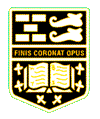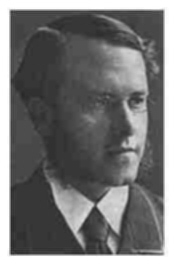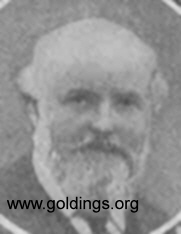|
MR. WILLIAM BAKER, M.A., LL.B.
Honorary Director of Dr. Barnardo's Homes, 1905-1920
The man whose name and work are commemorated in the William Baker Technical School, was born at Lismacue, Tipperary, in 1848.
In his boyhood days he was tall, strong and athletic, and when he reached early manhood he had acquired a reputation as an excellent
oarsman, a formidable football player and a fearless horseman.
When he entered Trinity College, Dublin, he soon took a leading position. In classics and mathematics he was a first honours man.
He stood first in his LL. B. examination, and was successively Classical Exhibitioner and Scholar, Moderator and Medallist. The
legal profession claimed him, and on leaving Trinity he came over to England, and was called to the Chancery Bar in 1875.
In his early thirties William Baker came under strong religious
influences which, he said, entirely changed the current of his life, He became a keen Bible student and an active evangelist. In 1886
he joined Dr. Barnardo's Committee, and a few years later, when the Homes were incorporated, he was elected Vice-Chairman of
the Council.
When Dr. Barnardo died, the question confronting the Members of Council as they took up the heavy burden of responsibility now
devolving upon them, was: Where could they find another man of outstanding ability and character, animated by the same spirit as
the Founder, able and willing to accept the task of guiding and directing the great enterprise which the Doctor's genius had built up?
Their Vice-Chairman, was well-known to them as a gifted man, an earnest Christian and one devoted to the cause. To him they
turned with one accord, and their earnest entreaties came to William Baker as the call of God to sacrifice an established practice as a
member of the Chancery Bar, and take over, as Honorary Director the work that had fallen from the hands of the Founder. When his
decision was made known he was accorded a remarkable public welcome at a meeting which completely swamped the old Exeter
Hall in the Strand.
When the new Director took up his post in the Board Room at headquarters the heads of departments "quickly found his personality
and methods of working in striking contrast to those of his predecessor. Dr. Barnardo lived to command, and every thread of control
had to be in his hands. Every phase of the work was the outcome of his personal thought and planning, and every detail had to come
under his keen scrutiny. William Baker, knowing the Doctor's genius, his skill as an organizer and the care with which he had
selected and trained his staff, was content to allow things to remain as the Founder had planned them. Only when appealed to did he
suggest a course of action or give a decision.
His legal training naturally stood him in good stead, and it was soon realized that he had more than the usual powers of discernment,
and a marked faculty for getting to the heart of a problem. His first enquiry, when appealed to in a difficult case, would be:
"What is the evidence?" An over-confident statement would meet the challenge: "Now let us consider, is that a matter of fact or
just a matter of opinion?" His decisions were felt to be wise and just, and his considerate and sympathetic manner impressed all who
came into contact with him. More and more the leading members of his staff came to look up to him and to lean upon him; gradually
he gathered the multitudinous threads of the work into his hands until every part of the great organisation felt the power of his
personality.
On the platform Mr. Baker always shone. His clear, far-reaching voice, keen sense of humour, transparent sincerity, his love for the
children and his earnest desire to be used of God, all combined to make him an arresting and attractive speaker.
For fifteen years William Baker filled the position of Honorary Director and Chairman of Council of the Barnardo Homes, and by
his wise administration and gracious personality won the affection and esteem of all who knew him. Under his directorate the work
prospered abundantly. All outstanding indebtedness was swept away, and the income was more than doubled. As the passing years
gave gratifying evidence that the work was firmly rooted in the public confidence, the Council was able to give form to some of the
ideals which the Founder had cherished but which, for lack of means he had been unable to realize.
It was a great day for Barnardo boys when they vacated their cramped, over crowded workshops in Stepney, paraded for the last
time in their stony playground and, full of hope and anticipation, marched through the gates headed by their band, en route for
Goldings to take possession of the well equipped, modem Technical School which had been acquired as a memorial to the man who
unhesitatingly sacrificed all worldly prospects in order to devote time and talents to guiding and directing the work of the Barnardo
Homes through the most critical period in its history.
A. E. W.
William Baker Esq. LL. B. Director. Dr. Barnardo's Homes 1905- 1920 passed away 17th nov 1920
|



